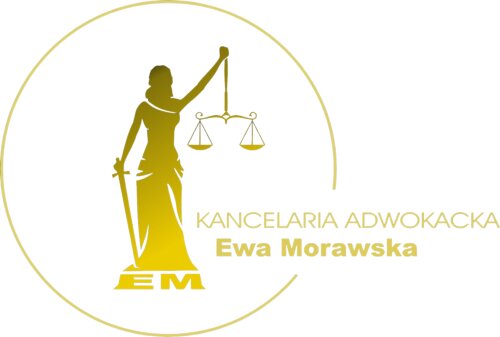Best Collaborative Law Lawyers in Warsaw
Share your needs with us, get contacted by law firms.
Free. Takes 2 min.
Free Guide to Hiring a Family Lawyer
List of the best lawyers in Warsaw, Poland
About Collaborative Law in Warsaw, Poland
Collaborative law, also known as collaborative practice, is an alternative dispute resolution system used in Warsaw, Poland. It's an approach often used for resolving disputes in family law, such as divorces and separations, but can also be applicable in other areas of law, including business and employment matters. In collaborative law, parties involved agree to solve their issue outside of court, with each party having their own lawyer to guide and assist them throughout the process.
Why You May Need a Lawyer
Engaging a lawyer in a collaborative law process is vital. One key reason is that lawyers can provide you with advice about your legal rights and obligations, and help you understand the full implications of the settlements or decisions being made. They also support negotiations and communications in a productive way, avoiding potential conflicts. In collaborative law matters, where all parties are willing to work together to find a mutual agreement, having a lawyer can ensure that the process remains balanced, structured, and centred on the parties' best interests.
Local Laws Overview
In Warsaw, Poland, the Civil Procedure Code does not provide an expressed legal basis for collaborative law. However, the idea of resolving disputes amicably outside of court fits well within the Polish legal system’s general principles. These principles provide room for peaceful dispute resolution methods such as negotiation, conciliation, or compromise. Although there might not be a specific law governing collaborative practice, there are several legal guidelines and ethical norms that are expected to be upheld by lawyers during their practice.
Frequently Asked Questions
What kind of disputes can collaborative law address?
Collaborative law is particularly suited to disputes where the parties have an ongoing relationship, such as family law matters, employment disputes or business disagreements. The aim is to resolve the issue in a way that meets the interests of all parties involved.
Do I need to go to court in collaborative law?
No, the aim of collaborative law is to resolve disputes without the need for court litigation. Instead, decisions are made through collaborative meetings where all parties work together to find a mutual agreement.
Can I change my lawyer during the collaborative law process?
Yes, but it might impact the process. If a party decides to exit the collaborative process to go to court, then their collaborative lawyer must quit under the "disqualification agreement", forcing said party to hire a new lawyer.
How long does the process take?
There's no fixed timeframe. The process could take as less as a few weeks to several months, depending on the complexity of the dispute and the willingness of both parties to work towards a solution.
What if the collaborative process doesn't work?
If you can't resolve your issues through collaborative practice, then you can choose to litigate the matter in court.
What is the role of a collaborative lawyer?
They advise and assist their client during the process while promoting open communication and helping to find solutions that are fair to all parties involved.
Is collaborative law expensive?
While you'll need to pay your lawyer's fees, collaborative practice can often be cheaper than court proceedings because it avoids court fees and can be resolved more quickly.
Additional Resources
There are several organizations and bodies that could provide valuable resources for people interested in collaborative law. These include local legal advice centers, bar associations, and relevant non-governmental organizations. However, always ensure to verify their credibility and consult with your lawyer before following any advice.
Next Steps
If you need legal assistance in collaborative law, the first step is to find a lawyer trained in this area. This lawyer can guide you through the process and help you understand your legal rights and obligations. Once you and the other party agree to use collaborative law, a "participation agreement" will be signed by all parties involved, including the lawyers. Then, meetings will be organized to find a beneficial solution to the dispute at hand.
Lawzana helps you find the best lawyers and law firms in Warsaw through a curated and pre-screened list of qualified legal professionals. Our platform offers rankings and detailed profiles of attorneys and law firms, allowing you to compare based on practice areas, including Collaborative Law, experience, and client feedback.
Each profile includes a description of the firm's areas of practice, client reviews, team members and partners, year of establishment, spoken languages, office locations, contact information, social media presence, and any published articles or resources. Most firms on our platform speak English and are experienced in both local and international legal matters.
Get a quote from top-rated law firms in Warsaw, Poland — quickly, securely, and without unnecessary hassle.
Disclaimer:
The information provided on this page is for general informational purposes only and does not constitute legal advice. While we strive to ensure the accuracy and relevance of the content, legal information may change over time, and interpretations of the law can vary. You should always consult with a qualified legal professional for advice specific to your situation.
We disclaim all liability for actions taken or not taken based on the content of this page. If you believe any information is incorrect or outdated, please contact us, and we will review and update it where appropriate.











